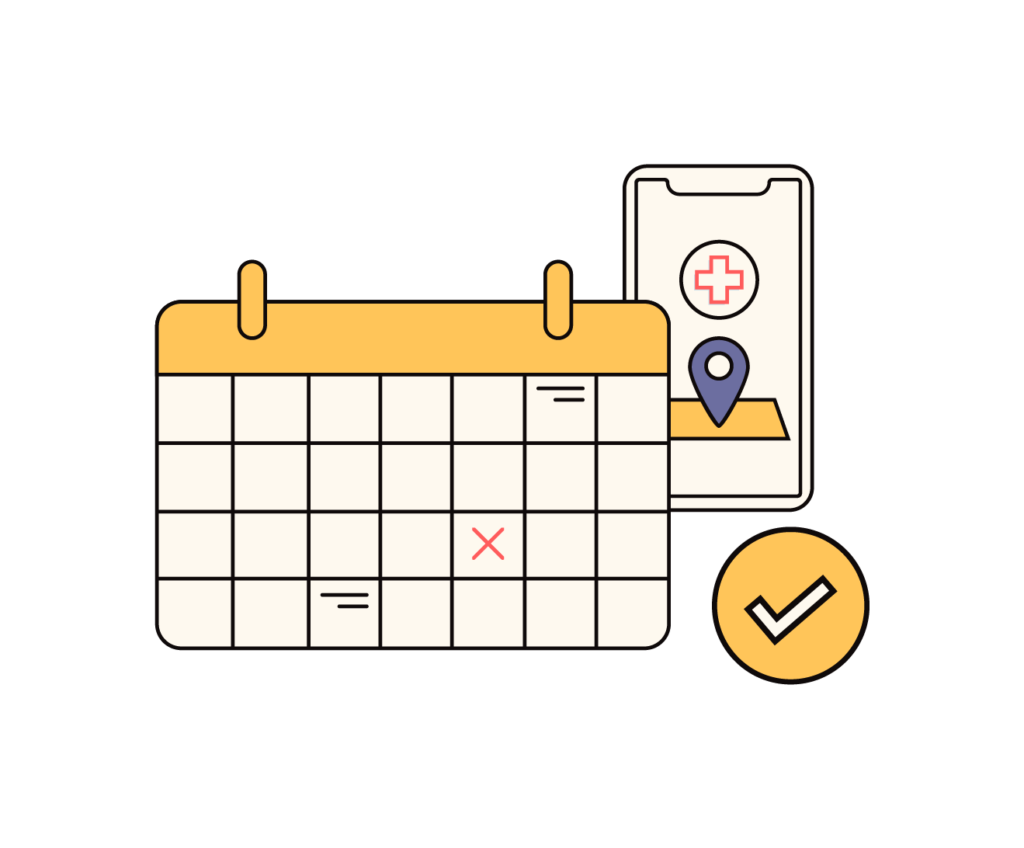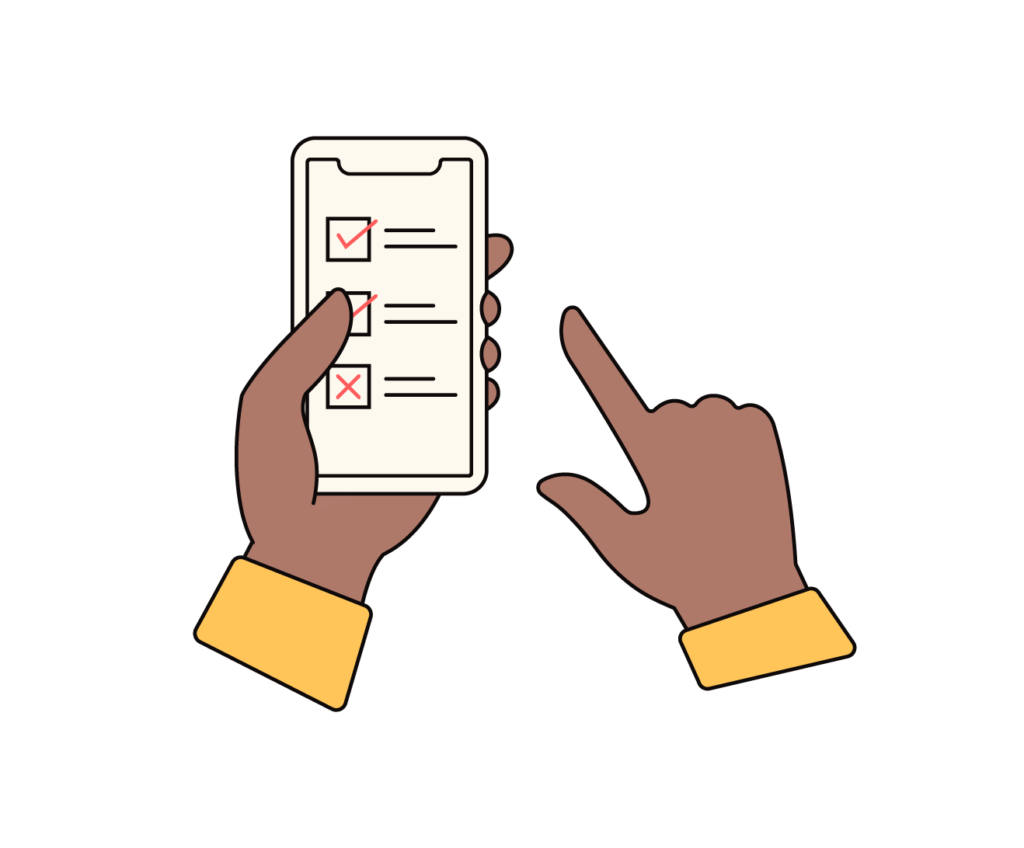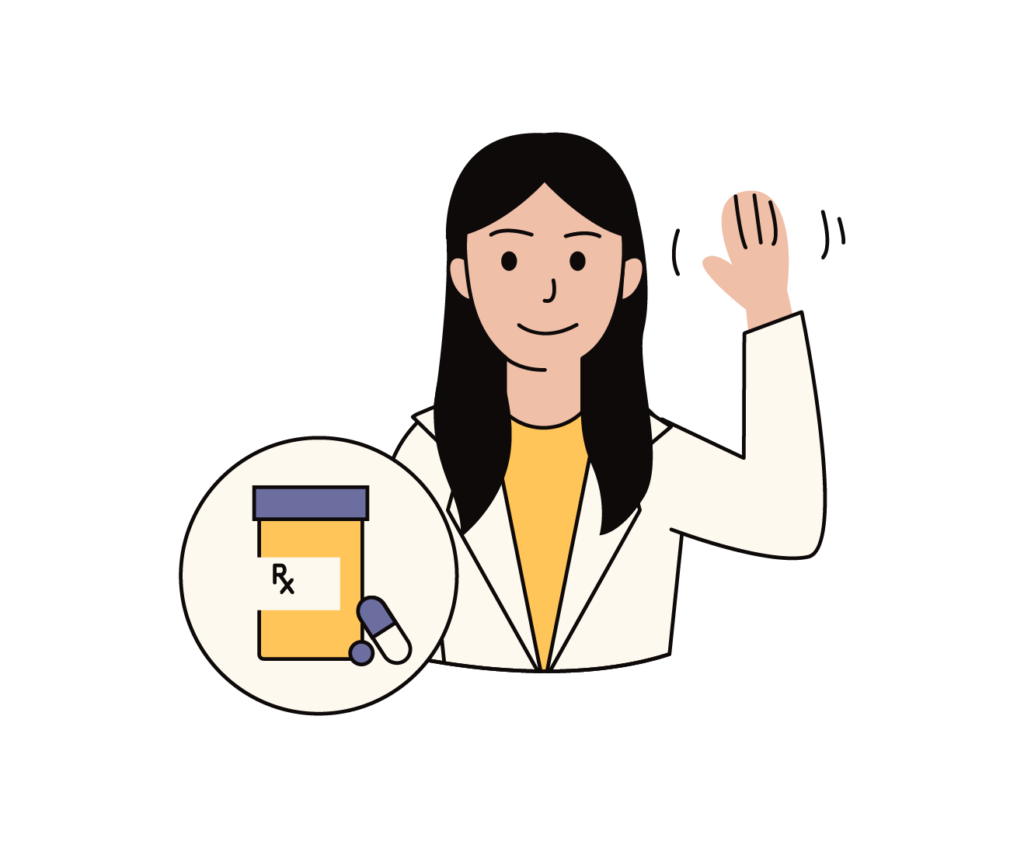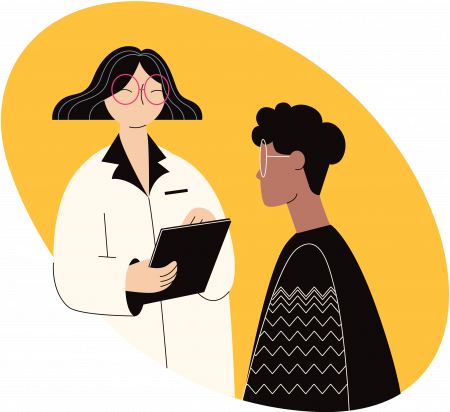With Scripted, your pharmacist can prescribe for common treatments & conditions.
Get a prescription and new medication in one visit to your local pharmacy. Affordable and accessible for everyone.
What is a UTI?
A urinary tract infection, or UTI, is an infection in the urinary tract. This commonly occurs when bacteria enters the urinary tract through the urethra, a narrow tube that passes urine from the bladder out of the body. UTIs are a common condition and can affect individuals of all ages. While both men and women can experience a UTI, it is much more common in women.
What you should know
Our platform guides pharmacists to look at the answers you provide to our self-assessment questions to decide if you qualify to receive an emergency anaphylaxis medication.
We use evidence based guidelines and protocols to ask you the right questions that will assess whether it’s safe for your pharmacist to prescribe or if you should be referred to a doctor, nurse, or specialist.
Can I be seen through Scripted for my UTI?
Women between the age of 18 and 65 years old, who have had a UTI in the past and are experiencing at least 2 UTI symptoms, may be seen for UTI through Scripted.
Take a look at the eligibility summary below to see if you are a candidate or if you should be seen by a doctor:
Can be treated by a pharmacist:
Cannot be treated by a pharmacist:
*Common UTI Symptoms include:
What is birth control?
Prescription birth control is most commonly used as a method to prevent pregnancy. However, there are other reasons that someone may use birth control, including treatment of gynecological conditions, such as endometriosis. Severe hormonal acne, very heavy and painful periods, and migraines associated with periods may also be reasons that birth control is used.
Getting access to hormonal birth control via the pharmacy is often one of easiest ways for people to access cheap birth control.
What you should know
Our platform guides pharmacists to look at the answers you provide to our self-assessment questions to decide if you qualify to receive an emergency anaphylaxis medication.
We use evidence based guidelines and protocols to ask you the right questions that will assess whether it’s safe for your pharmacist to prescribe or if you should be referred to a doctor, nurse, or specialist.
Can I be seen through Scripted for birth control?
Most people can get birth control through Scripted.
Take a look at the eligibility summary below to see if you are a candidate or if you should be seen by a doctor:
Can be treated by a pharmacist:
Cannot be treated by a pharmacist:
I’m a nonbinary or transgender person. Can I get a new prescription for birth control at my pharmacy?
While we would love to offer birth control to all patients, medical regulations currently require us to refer trans patients seeking new birth control prescriptions to physicians specializing in trans healthcare. If you’ve already gotten an existing prescription, filling it should be no problem.
We apologize for the inconvenience — Scripted was built in part by trans and nonbinary staff, so we know difficulties accessing trans-friendly care can be frustrating. As soon as these regulations change, we’ll update our guidelines to welcome trans and nonbinary birth control patients.
What is erectile dysfunction?
Erectile dysfunction is a common condition in which a man is unable to get or keep an erection that is firm enough for sexual intercourse. It is estimated that erectile dysfunction affects as many as 30 million men.
What you should know
Our platform guides pharmacists to look at the answers you provide to our self-assessment questions to decide if you qualify to receive an emergency anaphylaxis medication.
We use evidence based guidelines and protocols to ask you the right questions that will assess whether it’s safe for your pharmacist to prescribe or if you should be referred to a doctor, nurse, or specialist.
Can I be seen through Scripted for my erectile dysfunction?
Many men over the age of 18 who are symptomatic can be seen through Scripted for treatment of ED.
Take a look at the eligibility summary below to see if you are a candidate or if you should be seen by a doctor:
Can be treated by a pharmacist:
Cannot be treated by a pharmacist:
*Common Erectile Dysfunction Symptoms include:
What is Emergency Contraception?
Emergency contraception (EC) is a type of medication that can be used to prevent pregnancy after unprotected sex or if your birth control method fails. EC is also known as the morning-after pill, but it can be taken up to 5 days after unprotected sex.
What you should know
Our platform guides pharmacists to review the answers you provide to the Scripted self-assessment questions to decide if you need emergency contraception and if they can help you with this.
We use evidence based guidelines and protocols to ask you the right questions that will assess whether you need emergency contraception and if you should be referred to a doctor, nurse, or specialist.
Can I be seen through Scripted for emergency contraception?
Most adults who are at risk of pregnancy can be seen through Scripted for emergency contraception. Review the eligibility summary below to see if you are a candidate or if you should be seen by a doctor:
Can be treated by a pharmacist:
Cannot be treated by a pharmacist:
Benefits:
How to Get Started:
Examples:
If you are unsure whether you need emergency contraception, please talk to a pharmacist.
What is PrEP?
PrEP, or pre-exposure prophylaxis, is the use of a medication to prevent the spread of HIV to individuals that may be at risk. HIV can affect both men and women of all ages but certain behaviors put individuals at greater risk than others. Risk factors include men who have sex with men, anal sex, injection drug use, and sexual intercourse with an infected individual. PrEP is recommended for individuals in these situations or any other situation that places them at higher risk for getting HIV.
What you should know
Our platform guides pharmacists to look at the answers you provide to our self-assessment questions to decide if you qualify to receive an emergency anaphylaxis medication.
We use evidence based guidelines and protocols to ask you the right questions that will assess whether it’s safe for your pharmacist to prescribe or if you should be referred to a doctor, nurse, or specialist.
Can I be seen through Scripted for PrEP?
Review the eligibility summary below to see if you are a candidate or if you should be seen by a doctor:
Can be treated by a pharmacist:
Cannot be treated by a pharmacist:

Book an appointment online or scan a code at the pharmacy

Complete a digital self-assessment form

Meet with a pharmacist in person. If eligible, they’ll prescribe your medication and fill it in the same visit
Need support? Have a question? We’re here to help.
